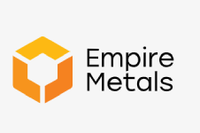Inmet Mining Owners Face Dilemma as First Quantum Dangles Third Bid
Sitting on the second-largest undeveloped copper deposit in the world makes Inmet Mining an attractive target — worth $72 per share if First Quantum’s latest bid is to be believed. Now shareholders must carefully consider whether they can get more or if it’s worth paying well above the industry average to develop and operate the mine on their own.
Inmet Mining (TSX:IMN) shareholders might want to hold out for a better offer than the $5.2 billion that First Quantum Minerals (TSX:FM) has put on the table. Alternatively, they could wait for Cobre Panama, the second-largest undeveloped copper deposit in the world, to start production in 2016 in the hope that the payoff will be equal to or greater than what they would get in a takeover.
Inmet owns 80 percent of the open-pit copper development project Cobre Panama, and in the midst of First Quantum’s bids for the company, Inmet has raised the mine’s estimated life to 40 years from 31 years on higher proven and probable mineral reserves, including a 27-percent boost to estimated copper reserves. The mine is now expected to produce about 300,000 tonnes of copper, worth about $1.1 billion, each year.
Since the bid, Inmet’s share price has consistently traded well above the C$72 per share offer, suggesting that investors expect a higher offer, either from First Quantum or from a rival bidder. On January 3, the stock was trading between C$74 and C$75.
First Quantum’s interest in Inmet comes a year and a half after Inmet and Lundin Mining (TSX:LUN) decided to cancel a merger plan that was not only marred by political and financial uncertainty for the Cobre Panama mine, but also by Equinox Minerals’ (OTC Pink:EQNMF) hostile takeover offer for Lundin. In the first couple of weeks after that merger was announced, Inmet was trading as high as C$79 per share. Immediately following the termination, it traded at C$70.
“The market is clearly saying that we are going to need a higher price to push this through,” Barry Schwartz, a Baskin Financial Services fund manager in Toronto, told Bloomberg. Bloomberg’s report also notes that First Quantum’s bid values Inmet at 7.6 times its earnings before interest, taxes, depreciation and amortization (EBIDTA) in the last 12 months — the lowest EBIDTA multiple among copper-industry deals of $500 million or more since 2007.
Initially, First Quantum approached Inmet with a C$62.50 per share offer in October. The offer was subsequently raised to C$70 per share. Inmet rejected that offer and responded by adopting a plan that allows shareholders to buy Inmet shares at half the market price if anyone attempts to buy 20 percent of more of the company. Still, it said the plan “is not intended to prevent take-over bids,” but rather to give the company “adequate time to consider and evaluate any such take-over bid.”
That means the company might sell at the right price — an eventuality that could be dictated by four shareholders, including holding company Leucadia National and Temasek Holdings, a subsidiary of Singapore’s sovereign wealth fund, which together own nearly 40 percent of the company.
“Given the highly concentrated nature of Inmet’s shareholder base … we believe that a markedly higher offer, likely in the range of C$80.00-90.00 per share, would be required to motivate Inmet shareholders to accept First Quantum’s unsolicited offer,” Reuters cited Canaccord Genuity analyst Orest Wowkodaw as saying.
The price could be driven up to that level if more bidders enter the fray. In First Quantum CEO Philip Pascall’s words, Inmet’s Cobre Panama may be one of the few copper projects that is “developable,” meaning that it is highly attractive.
Analysts and fund managers cited by Bloomberg Businessweek, The Globe and Mail and Reuters note that other companies that might be interested in Inmet include Vale (NYSE:VALE); Teck Resources (NYSE:TCK,TSX:TCK.B), which operated the Cobre Panama project until it got into balance sheet difficulties in 2008; and Freeport McMoRan Copper & Gold (NYSE:FCX) — although Freeport may be a less likely candidate now that it has decided to spend $20 billion to buy McMoRan Exploration (NYSE:MMR) and Plains Exploration & Production (NYSE:PXP).
While Cobre Panama could be a future cash cow, shareholders may want to consider the cost of developing that mine as other companies have been putting mine development on hold. Earlier this year, BHP Billiton (ASX:BHP,NYSE:BHP,LSE:BLT) said it plans to look for an alternative to its “capital-intensive” $20-billion plan to expand its Olympic Dam copper and uranium mine.
In May, Inmet increased the cost estimate for Cobre Panama by 43 percent, according to The Globe and Mail. Inmet’s share of the $6.2 billion development cost will be $4.8 billion. Korea Panama Mining, which owns 20 percent of the mine, will put down the rest. Inmet had nearly fully funded the project at the end of September, with the exception of $371 million, and in December, it raised $500 million by selling senior notes, part of which will be used to fund Cobre Panama.
Inmet said it “recognizes the industry trend of escalating costs as a significant risk” and to limit cost escalation it has so far contracted out $4.1 billion of the total $6.2 billion costs. But the costs may be on the high side, and shareholders may want to consider what another owner could do to limit them.
Inmet’s cost estimate is at about $23,000 per tonne of copper produced, according to Nomura analysts cited by Reuters. That’s well above the $18,500 sector average, and almost four times the $6,000 per tonne that First Quantum expects to spend to develop its Sentinel copper mine in Zambia. First Quantum did not respond to requests for a detailed cost overview for Sentinel.
For First Quantum, acquiring Inmet is an opportunity to establish itself as one of the five biggest copper producers in the world amid a continued global supply shortage. It is also confident that it can build Cobre Panama more cheaply. “We tend to build [mines] at somewhere between a third and half the costs of anybody else,” President Clive Newall told The Globe and Mail.
Having already raised its bid twice, First Quantum might be amenable to raising it again. “Our clear preference remains to engage with Inmet, as we believe strongly in the compelling strategic and financial merit of the transaction,” Philip Pascall, CEO of First Quantum said in a statement. If Inmet continues to resist, and First Quantum or other bidders don’t offer more, the company’s shares may fall back to the C$40-something level they were trading at before the first bid.
Securities Disclosure: I, Ragnhild Kjetland, hold no investment interest in any company mentioned in this article.





